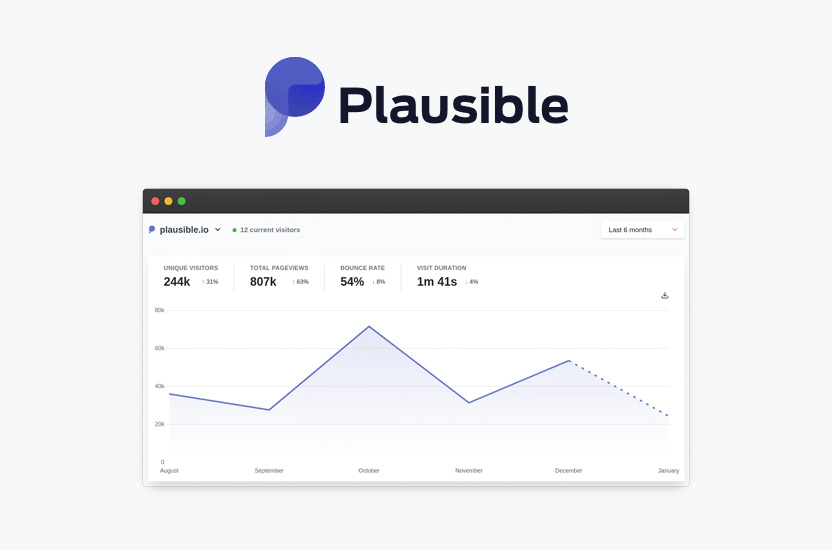
Privacy-friendly alternative to Google Analytics
When it comes to tracking website analytics, Google Analytics has long been the go-to tool for businesses and website owners. However, with the increasing concern around privacy and data collection, many are now seeking out alternative solutions.
Enter Plausible, a privacy-focused, open-source analytics tool that has been gaining popularity in recent years. In this blog post, I’ll take a closer look at Plausible and compare it to Google Analytics.
Their website describes themselves as:
… is intuitive, lightweight and open source web analytics. No cookies and fully compliant with GDPR, CCPA and PECR. Made and hosted in the EU, powered by European-owned cloud infrastructure 🇪🇺
Plausible Analytics
– plausible.io
Sounds pretty good to me, so let’s take a closer look.
Privacy in focus
One of the biggest selling points of Plausible is its focus on privacy. Unlike Google Analytics, which collects a vast amount of personal data, including IP addresses, device information, and browsing history, Plausible minimize any data collection in general and do not track individual people. All the data is in aggregate only, meaning they do not generate any persistent identifiers. This means that Plausible is fully GDPR, CCPA, and PECR compliant and does not require users to consent to cookies or any other data tracking methods.
Ease of Use
Both Google Analytics and Plausible are easy to set up and use. However, the Google Analytics alternative’s interface is much simpler and more intuitive than Google Analytics, making it easier for non-technical users to understand and navigate. The dashboard provides real-time insights into website traffic and user behavior, including pageviews, bounce rates, and popular pages. Google Analytics, on the other hand, has a more complex interface with multiple menus and options, which can be overwhelming for novice users.
Pricing
One of the biggest advantages is its cost. While Google Analytics is free to use, it is often considered a “freemium” model since users are required to pay for premium features such as ad tracking and data retention. Plausible, on the other hand, offers a transparent pricing model with three plans: personal, small business, and medium business. The personal plan starts at just 9€ per month, making it an affordable option for individuals and small businesses.
Data Accuracy
When it comes to data accuracy, both Google Analytics and Plausible are reliable tools. However, Plausible uses a different approach to data tracking, which could result in slightly different metrics. Google Analytics relies on cookies to track user behavior, whereas Plausible uses server logs. This means that they may not track as much data as Google Analytics, but the data it does collect is likely to be more accurate and less susceptible to ad-blocking and other privacy measures.
Customizability
Another advantage of Plausible is its customizability. While Google Analytics provides a wide range of features and reports, it can be limited in terms of customization. Plausible, on the other hand, is an open-source tool, which means that users can customize it to their liking. This includes creating custom reports and dashboards, integrating with other tools, and even modifying the code itself.
My conclussion
In conclusion, Plausible is an easy-to-use, affordable and privacy friendly alternative to Google Analytics.
While it may not provide the same level of data tracking as Google Analytics, it is a reliable tool that offers a simpler interface, greater customizability, and a transparent pricing model.
Ultimately, the choice between Plausible and Google Analytics will depend on your specific needs and preferences.
However, if you are concerned about data privacy and want a more user-friendly analytics tool, Plausible is definitely worth considering.
